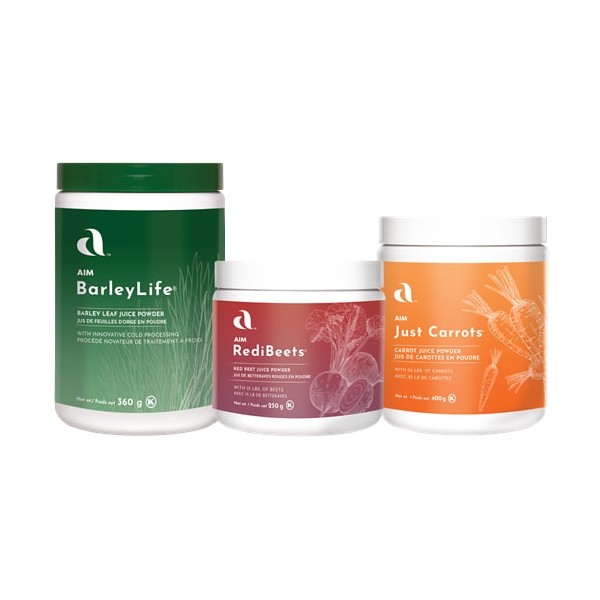Learn how nano glutathione can help you age gracefully by neutralizing harmful free radicals, supporting a robust...
Blog Search
Blog tags
The Benefits of Juicing
Fresh juices: for taste, variety and health!
Fresh juices are undeniably superior to commercial juices, whose ingredients were treated and processed, containing additives and which in general have been pasteurized. With fresh juice, obtained through a juice extractor equipped with grinding rolls, you get the maximum nutrients to meet the needs of your being and improve your health.
Fresh vegetable juices allow you to consume an advantaging amount of vegetables. Try to eat a kilo of raw carrots; or you can drink a kilo of raw carrots easily. And fresh vegetable juices contain almost all the nutrients which came from the original vegetables if they are juiced with a quality juicer.
Vegetable juices, but also cereal juices or legume juices (wheat grass, barley grass, young sunflower or buckwheat shoots), are a great way to consume nutritious raw food. We can make mixes, creating new flavors, and they are even more digestible than the whole foods from which they came from.
Fresh green juices, especially wheat grass juice, have remarkable detoxifying effects, promoting better health.
Fresh juices have therapeutic properties which have long been recognized. For example…
- hypericum juice battles depression and burnout, neuralgia, headaches and rheumatism;
- nettle juice helps to cleanse the blood;
- celery juice facilitates digestion;
- valerian juice helps to overcome insomnia and relieve stress;
- oat juice stimulates blood circulation and gives energy;
- carrot juice is excellent against heartburn and hyperacidity.
Juices should be consumed very fresh because they rapidly lose their nutritional properties and even their flavor. But thanks to magnetic technology, good juicers reduce oxidation and extend the shelf life of the juice. We’re talking about two or three days in the refrigerator.
You can make fresh vegetable juice from whole vegetables: leaves, stems and roots (except rhubarb and carrot, whose leaves are toxic).That way you get maximum nutrients.
Fresh, differently mixed juices are often fortunate discoveries. For example, add carrots and celery to other vegetable juices, or mix different varieties of the same vegetable (such as tomatoes). Here are some other suggestions:
- Wheatgrass, carrots, cucumbers, celery
- Tomatoes, celery, parsley, carrots, red pepper, garlic, shallot, watercress (homemade V8)
- Wheatgrass, beets, carrots, apples
- Carrots, cucumbers, beets
- Spinach, celery, parsley, carrots
- Cabbage, apples, lemon, water
- Grapefruit, oranges, water and honey
- Cantaloupe, blueberries
From fruit simply pressed by hand or from juice obtained through a juicer powered by centrifugal force (centrifuge), juices extracted by means of a high quality juicer equipped with grinding rolls should be prefered, which retain a maximum amount of minerals and living enzymes.
To obtain the best fresh juices, choose a low speed juicer, with a powerful motor and as versatile as possible. Other advantages of a good juicer: low noise emissions, easy to use and to clean.


















Leave a comment
Log in to post comments